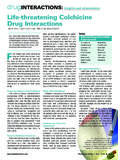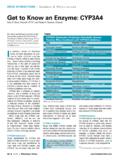Transcription of World Health Organization Please visit our website …
1 World Health Organization Please visit 20 Avenue Appia our website at: CH - 1211 Geneva 27 Switzerland Tel. +41 (0)22 791 40 24. Fax +41 (0)22 791 13 88. Email: WHO GUIDELINES ON. HAND HYGIENE IN Health CARE. (ADVANCED DRAFT): A SUMMARY. WHO/EIP/SPO/ World Health Organization 2005. All rights reserved. Publications of the World Health Organization can be obtained from WHO Press, World Health Organization , 20 Avenue Appia, 1211 Geneva 27, Switzerland (tel.: +41 22 791 2476; fax: +41 22 791 4857; email: int).
2 Requests for permission to reproduce or translate WHO publications whether for sale or for noncommercial distribution should be addressed to WHO Press, at the above address (fax: +41 22 791 4806; email: The designations employed and the presentation of the material in this publication do not imply the expression of any opinion whatsoever on the part of the World Health Organization concerning the legal status of any country, territory, city or area or of its authorities, or concerning the delimitation of its frontiers or boundaries.)
3 Dotted lines on maps represent approximate border lines for which there may not yet be full agreement. The mention of specific companies or of certain manufacturers' products does not imply that they are endorsed or recommended by the World Health Organization in preference to others of a similar nature that are not mentioned. Errors and omis- sions excepted, the names of proprietary products are distinguished by initial capital letters. All reasonable precautions have been taken by WHO to verify the information contained in this publication.
4 However, the published material is being distributed without warranty of any kind, either express or implied. The responsibility for the interpretation and use of the material lies with the reader. In no event shall the World Health Organization be liable for damages arising from its use. Printed in France World ALLIANCE FOR PATIENT SAFETY. WHO GUIDELINES ON. HAND HYGIENE IN Health CARE. (ADVANCED DRAFT): A SUMMARY. CLEAN HANDS ARE SAFER HANDS. WHO Guidelines on Hand Hygiene in Health Care (Avanced Draft): A Summary Foreword 5.
5 Introduction 7. The problem: Health care-associated infections are a major cause of death and disability worldwide 9. The economic burden 12. Interventions are available but are not being used 12. The solution 14. Recommendations 17. 1. Indications for handwashing and hand antisepsis 17. 2. Hand hygiene technique 18. 3. Recommendations for surgical hand preparation 18. 4. Selection and handling of hand hygiene agents 19. 5. Skin care 20. 6. Use of gloves 20. 7. Other aspects of hand hygiene 21. 8. Health -care worker educational training and motivational programmes 21.
6 9. Governmental and institutional responsibilities 22. Benefits of improved hand hygiene 23. Implementation strategies 25. The task forces 25. The launch 26. The pilot testing phase 27. Conclusion: the way forward 29. Selected references 30. Acknowledgements 31. WHO Guidelines on Hand Hygiene in Health Care . Foreword Health care-associated infections affect hundreds of millions of patients worldwide every year. As an unintended result of seeking care, these infections lead to more serious illness, prolong hospital stays, and induce long-term disability.
7 Not only do they inflict unexpected high costs on patients and their families, they also lead to a massive additional financial burden on the Health -care system and last but not least contribute to unnecessary patient deaths. By their very nature, infections have a multifaceted causation related to systems and processes of Health -care provision and political and economic constraints on Health systems and countries, as well as to human behaviour conditioned by educa- tion. Most infections are, however, preventable.
8 Importantly, there is a large and unfair patient safety gap, with some Health -care institutions and systems managing the risks to patients much better than others. The level of development and the resources available are not the only critical issues for success: improvement is reported from both developed and developing countries and is a source of learning among them. Let us assess the size and nature of the problem of Health care-associated infec- tion and create the basis for monitoring the effectiveness of preventive actions worldwide.
9 Surveillance and prevention, relying on evidence-based best practice, is possible. Development of effective solutions to improve patient safety and reduce risk is also possible. Tools are available, but they should be tested, adapted and implemented worldwide with a sense of equity and solidarity. Hand hygiene is the primary measure to reduce infections. Though the action is simple, the lack of compliance among Health -care providers is problematic through- out the World . Following recent understanding of the epidemiology of hand hygiene compliance, new approaches have proven effective.
10 The Global Patient Safety Challenge 2005 2006: Clean Care is Safer Care is focusing part of its attention on improving hand hygiene standards and practices in Health care and on helping to implement successful interventions. As part of this approach, WHO Guidelines for Hand Hygiene in Health Care (Advenced Draft) prepared with the help of more than 100 international experts, are in the testing and implementation phases in different parts of the World . Pilot sites range from modern, high-technology hospitals in developed countries to remote dispensaries in resource-poor villages.
















